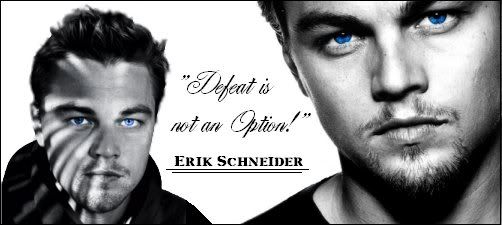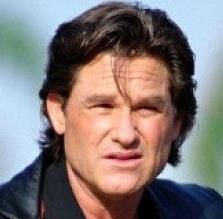Post by ∬: Erik Schneider on Dec 22, 2009 1:52:19 GMT
Country: Russia
Area/Setting: A large town on the outskirts of the Demjansk Pocket. A large river runs down the center of the town as well as a major road vital to the Gezrman forces in the area.
Current Time: 2:00
Weather Conditions: Light snow and wind in the area. Few feet of snow on the ground.
The bitter winds of Russia wrapped around the Obersturmfuhrer, sucking heat and energy out from his body. The German blitzkrieg tactics against the Soviet Union only months prior proved fatal to the poor bastards who found themselves engaged in winter warfare. The fools up top, high in charge of the German armies, failed to supply the German soldiers the much needed supplies to fight a winter war. The best the Obersturmfuhrer had to combat the Russian cold was a heavy wool greatcoat in field-grey. The double-breasted great coat reached down to the officer's calf, the cloth belt tightening the coat at his waist. Despite having grey wool gloves on, Schneider's fist were tightly in the pockets just below the waist of the greatcoat for warmth. Around his face and neck he wore a toque, a tube scarf, which protected against the painful wind.
Unlike the other ill-equipped soldiers, Schneider did not scavenge boots, jackets, fur coats, and other winter clothing off the enemy or civilians. However, he did use improvised winter camouflage in the form of a torn bedsheets. Like most of the SS men under his command, he used some white sheets as an overgarment for some sense of camouflage. He found this improvised camouflage was better than having none at all, which made the Germans stick out like sore thumbs in the snow. The sheet fit well over his greatcoat, fastened over him by his waist belt. The sleeves came about halfway down his bicep, while the under portion came down to about his knees. Some more of the sheet served as a camouflage helmet cover, tightened around his helmet by a cover strap. Other men had their helmets white-washed, but Schneider decided against having his own helmet painted.
Schneider lifted his hands out of his pockets and raised them up to his lips, where he struggled to keep warm with cigarette. He pulled the cigarette from his lips and tossed it somewhere in the snow, before turning back inside. In the distance, he could hear some sporadic fighting, but for the most part the Germans stopped making attempts at Soviet defenses. Inside the hotel, which Schneider had set up as a command post, a Hauptsturmfuhrer was calling for him. Johannes Steinhoff, the commander of the company that had come to Schneider and his men's "rescue". The Obersturmfuhrer did not enjoy the man who was arrogant and power hungry. Although it was Schneider who had formed the Kampfgruppe, as evident in it's name Kampfgruppe Schneider, and defended the town for several days... it seemed Steinhoff thought it was he who achieved the feat.
The Soviet counter-offensive and fighting near Demjansk left the units in the area in chaos. When the strategic Russian town which had a major road running through it's center came under to attack, Schneider rushed to it's defense. Forming a hasty Kampfgruppe, an ad-hoc organization of different units, he led his men in brutal fighting against their Russian attackers. The Kampfgruppe had little more than a hundred or so men, most of which were a Panzergrenadier company of the 3rd SS Totenkopf. The others were a mixture of some mortars, a few anti-tank guns, and a handful of tanks. The tanks had all been destroyed during the fighting, the mortar's had amazingly run out of ammunition, and the anti-tank guns didn't have much left to do with no tanks in the area.
Approaching the table with a map of the city laid out upon it, Schneider stopped and looked at the men gathered. Most of his company's HQ was spread about the hotel, but gathered before the table were his platoon leaders, who some runners had gathered previously, and some men from Steinhoff's company. Steinhoff, being of superior rank, stole command of the town's defense. Though Steinhoff only claimed command in name only, he still let Schneider do most of the leading. All the Hauptsturmfuhrer was after was glory, glory he wished to steal from the accomplishments of other men. Schneider's platoon leaders who were in the room were Untersturmfuhrer Muller and two senior NCOs Armin Fuchs and Kurt Hauff. The junior officer lead the first platoon, Fuchs the second, and Hauff the third. "Gut für alle haben Sie Neulinge, Hauptsturmfuhrer Steinhoff verlangt mich berichten Ihnen über die Situation."
Translations:
- "Alright, for all you newcomers, Hauptsturmfuhrer Steinhoff has requested I give you a report on the situation."
Area/Setting: A large town on the outskirts of the Demjansk Pocket. A large river runs down the center of the town as well as a major road vital to the Gezrman forces in the area.
Current Time: 2:00
Weather Conditions: Light snow and wind in the area. Few feet of snow on the ground.
The bitter winds of Russia wrapped around the Obersturmfuhrer, sucking heat and energy out from his body. The German blitzkrieg tactics against the Soviet Union only months prior proved fatal to the poor bastards who found themselves engaged in winter warfare. The fools up top, high in charge of the German armies, failed to supply the German soldiers the much needed supplies to fight a winter war. The best the Obersturmfuhrer had to combat the Russian cold was a heavy wool greatcoat in field-grey. The double-breasted great coat reached down to the officer's calf, the cloth belt tightening the coat at his waist. Despite having grey wool gloves on, Schneider's fist were tightly in the pockets just below the waist of the greatcoat for warmth. Around his face and neck he wore a toque, a tube scarf, which protected against the painful wind.
Unlike the other ill-equipped soldiers, Schneider did not scavenge boots, jackets, fur coats, and other winter clothing off the enemy or civilians. However, he did use improvised winter camouflage in the form of a torn bedsheets. Like most of the SS men under his command, he used some white sheets as an overgarment for some sense of camouflage. He found this improvised camouflage was better than having none at all, which made the Germans stick out like sore thumbs in the snow. The sheet fit well over his greatcoat, fastened over him by his waist belt. The sleeves came about halfway down his bicep, while the under portion came down to about his knees. Some more of the sheet served as a camouflage helmet cover, tightened around his helmet by a cover strap. Other men had their helmets white-washed, but Schneider decided against having his own helmet painted.
Schneider lifted his hands out of his pockets and raised them up to his lips, where he struggled to keep warm with cigarette. He pulled the cigarette from his lips and tossed it somewhere in the snow, before turning back inside. In the distance, he could hear some sporadic fighting, but for the most part the Germans stopped making attempts at Soviet defenses. Inside the hotel, which Schneider had set up as a command post, a Hauptsturmfuhrer was calling for him. Johannes Steinhoff, the commander of the company that had come to Schneider and his men's "rescue". The Obersturmfuhrer did not enjoy the man who was arrogant and power hungry. Although it was Schneider who had formed the Kampfgruppe, as evident in it's name Kampfgruppe Schneider, and defended the town for several days... it seemed Steinhoff thought it was he who achieved the feat.
The Soviet counter-offensive and fighting near Demjansk left the units in the area in chaos. When the strategic Russian town which had a major road running through it's center came under to attack, Schneider rushed to it's defense. Forming a hasty Kampfgruppe, an ad-hoc organization of different units, he led his men in brutal fighting against their Russian attackers. The Kampfgruppe had little more than a hundred or so men, most of which were a Panzergrenadier company of the 3rd SS Totenkopf. The others were a mixture of some mortars, a few anti-tank guns, and a handful of tanks. The tanks had all been destroyed during the fighting, the mortar's had amazingly run out of ammunition, and the anti-tank guns didn't have much left to do with no tanks in the area.
Approaching the table with a map of the city laid out upon it, Schneider stopped and looked at the men gathered. Most of his company's HQ was spread about the hotel, but gathered before the table were his platoon leaders, who some runners had gathered previously, and some men from Steinhoff's company. Steinhoff, being of superior rank, stole command of the town's defense. Though Steinhoff only claimed command in name only, he still let Schneider do most of the leading. All the Hauptsturmfuhrer was after was glory, glory he wished to steal from the accomplishments of other men. Schneider's platoon leaders who were in the room were Untersturmfuhrer Muller and two senior NCOs Armin Fuchs and Kurt Hauff. The junior officer lead the first platoon, Fuchs the second, and Hauff the third. "Gut für alle haben Sie Neulinge, Hauptsturmfuhrer Steinhoff verlangt mich berichten Ihnen über die Situation."
Translations:
- "Alright, for all you newcomers, Hauptsturmfuhrer Steinhoff has requested I give you a report on the situation."












